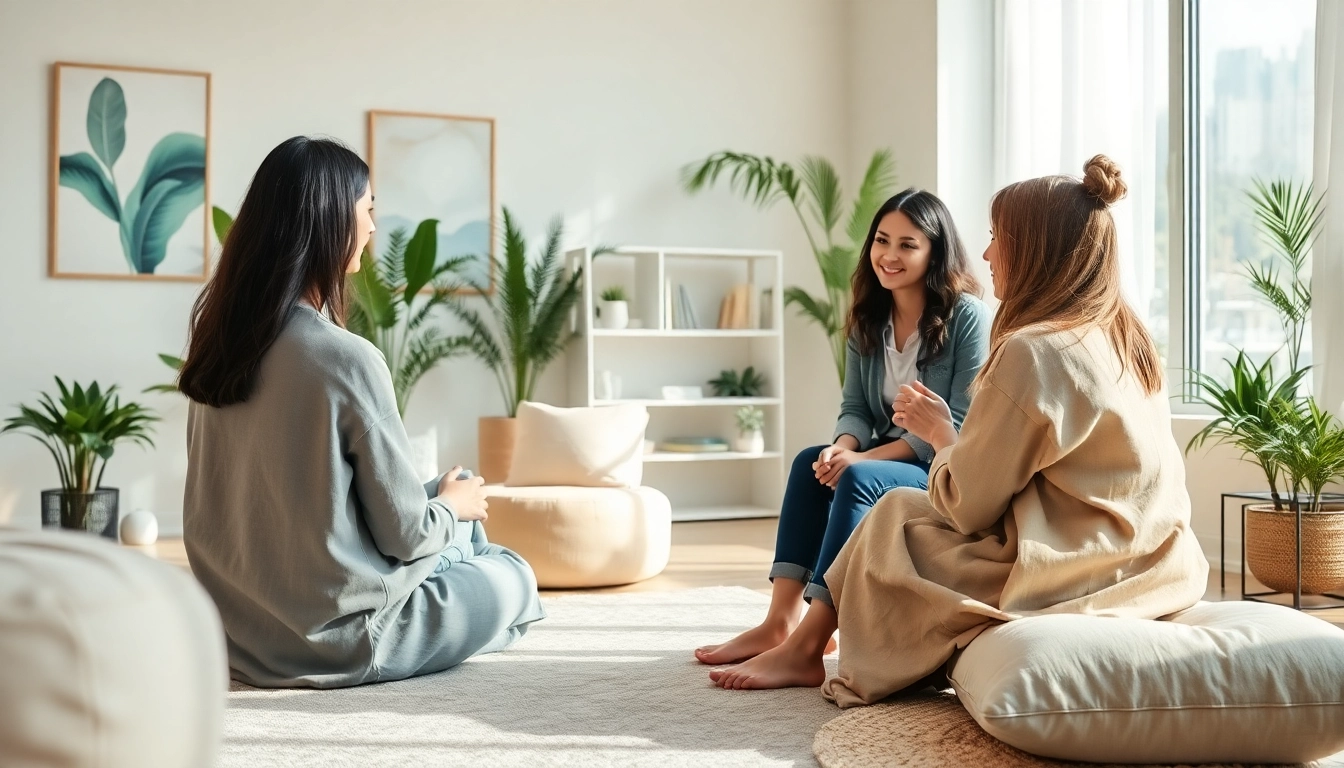
Understanding Anxiety: The Basics
What is Anxiety?
Anxiety is a natural human response to stressful situations, experienced as a feeling of apprehension or fear. While everyone may feel anxious from time to time—such as before a significant event or when facing demanding situations—anxiety becomes a mental health concern when it interferes with daily life. It can persist over a long period, leading to complications that affect emotional well-being and physical health. In clinical settings, anxiety disorders are commonly diagnosed and treated to improve the quality of life for individuals affected by excessive worry and tension.
Common Types of Anxiety Disorders
Anxiety disorders are varied, and understanding the specific type can significantly shape treatment pathways. The most prevalent types include:
- Generalized Anxiety Disorder (GAD): Characterized by excessive, uncontrollable worry about various aspects of life.
- Panic Disorder: Involves recurring panic attacks and intense fear, often accompanied by physical symptoms like heart palpitations.
- Social Anxiety Disorder: Encompasses extreme fear of social interactions and being judged, often leading to avoidance of social situations.
- Specific Phobias: These include irrational fears of specific objects or situations, leading to intensive emotional distress.
- Obsessive-Compulsive Disorder (OCD): Characterized by unwanted, intrusive thoughts (obsessions) and repetitive behaviors (compulsions) aimed at reducing anxiety.
Symptoms of Anxiety
The symptoms of anxiety can manifest both mentally and physically. Common symptoms include:
- Persistent worry or fear
- Feeling restless or on edge
- Increased heart rate
- Sweating and trembling
- Difficulty concentrating
- Sleep disturbances
Recognizing these symptoms early on is crucial for seeking appropriate anxiety treatment dubai.
Why Seek Anxiety Treatment Dubai?
Impact of Anxiety on Daily Life
Anxiety doesn’t just affect emotional health; its ripple effects can compromise daily functionality. Individuals may experience difficulties in personal relationships, challenges in professional settings, and may start to avoid activities that could lead to overwhelming feelings of anxiety. In extreme cases, this can result in isolation, decreased job performance, and a diminished quality of life.
Benefits of Professional Treatment
Choosing to seek professional anxiety treatment can lead to numerous benefits, including:
- Access to proven therapeutic methods tailored to individual needs.
- Improvement in coping strategies and resilience in managing stress.
- Restoration of optimal emotional and mental health, allowing for richer life experiences.
- Support and guidance to understand the root causes of anxiety.
Choosing the Right Treatment Options
Finding the right anxiety treatment can involve various methods. These may include talk therapy, medication, lifestyle changes, or a combination of these approaches. Each individual’s experience with anxiety is unique, and personalized treatment plans can lead to the best outcomes. Establishing the right approach often requires collaboration with healthcare professionals and ongoing assessments of strategies that are effective.
Approaches to Anxiety Treatment Dubai
Therapy Techniques: CBT and More
Cognitive Behavioral Therapy (CBT) is one of the most effective forms of therapy for anxiety disorders. This approach focuses on identifying and challenging negative thought patterns and behaviors that contribute to anxiety. Additionally, therapeutic techniques such as mindfulness-based therapies, exposure therapy, and acceptance and commitment therapy (ACT) are also utilized in Dubai, designed to empower individuals to face their fears gradually.
Medication Options and Their Efficacy
For some individuals, medication may be a suitable component of their anxiety treatment plan. Common types of medications include:
- Antidepressants: Such as SSRIs (Selective Serotonin Reuptake Inhibitors), which can help alleviate anxiety symptoms.
- Benzodiazepines: Typically used for short-term relief of severe anxiety symptoms.
- Beta-blockers: Can help manage physical symptoms of anxiety, particularly in high-pressure situations.
Medication efficacy varies by individual, necessitating careful management and regular follow-ups with a healthcare provider.
Integrative Approaches: Combining Therapies
Integrative treatment approaches combining conventional treatment and alternative therapies can yield comprehensive mental health benefits. For example, practices such as yoga, meditation, and dietary adjustments can complement traditional therapies, enhancing overall well-being and reducing anxiety levels.
Finding the Right Therapist in Dubai
Qualities to Look for in a Therapist
Selecting a therapist is a deeply personal choice and involves identifying professionals who resonate with you on various levels. Key qualities to consider include:
- A non-judgmental, empathetic demeanor.
- Experience and expertise in treating anxiety disorders.
- The ability to set goals collaboratively and offer structured plans.
- Customized treatment strategies adaptable to your progress.
Questions to Ask During Consultations
During initial consultations, it’s essential to ask questions that can help assess whether a therapist is the right fit. Here are some practical questions to consider:
- What treatment approaches do you specialize in?
- How do you measure progress in therapy?
- What can I expect during our sessions?
- Are you open to integrating different therapies if necessary?
Understanding Professional Credentials
It’s vital to know the credentials of your potential therapist. Look for licensed mental health professionals such as psychologists, licensed counselors, or social workers. Familiarizing yourself with accreditation helps ensure your therapist is qualified and adheres to professional ethical standards.
Long-Term Management of Anxiety
Developing Coping Strategies
Effective long-term management of anxiety often necessitates a toolkit of coping strategies. Techniques can range from grounding exercises like deep breathing and progressive muscle relaxation to maintaining a structured routine that fosters stability. Setting aside time for personal interests and engaging in enjoyable activities can also reduce anxiety symptoms.
Building a Support System
Having a robust support system can significantly alleviate feelings of anxiety. Support networks might consist of family, friends, support groups, or mental health professionals. Open communication about feelings and experiences can strengthen these connections and allow others to provide necessary support during challenging times.
Self-Care Practices for Anxiety Relief
Incorporating self-care practices into daily routines is essential for managing anxiety. Strategies might include:
- Engaging in regular physical activity to boost endorphins.
- Practicing mindfulness and meditation for mental clarity.
- Maintaining a balanced diet to support overall health.
- Prioritizing adequate sleep to improve mental resilience.
These practices contribute significantly to reducing anxiety levels and promoting emotional well-being over time.